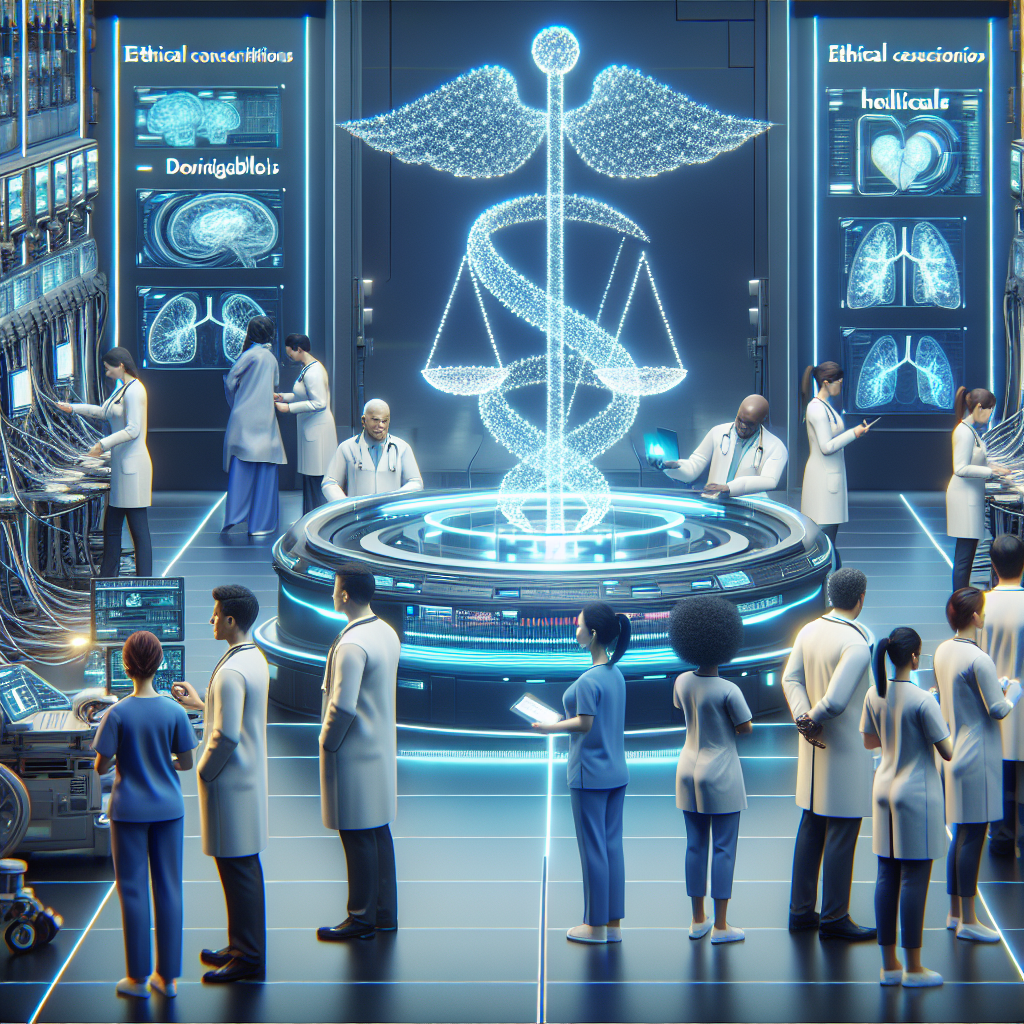In recent years, the use of artificial intelligence (AI) in healthcare diagnostics has become increasingly prevalent. AI technologies have the potential to revolutionize the way we diagnose and treat diseases, offering faster and more accurate results than traditional methods. However, as with any new technology, there are ethical considerations that must be taken into account when using AI in healthcare diagnostics.
One of the main ethical considerations in AI-powered healthcare diagnostics is the issue of data privacy and security. AI algorithms rely on vast amounts of data to make accurate predictions and diagnoses. This data often includes sensitive information about patients, such as their medical history, genetic information, and lifestyle habits. It is essential that this data is handled with the utmost care to protect patients’ privacy and prevent it from falling into the wrong hands.
Healthcare organizations must ensure that they are using secure and encrypted systems to store and transmit patient data. They must also obtain informed consent from patients before using their data for AI diagnostics, explaining how it will be used and ensuring that patients have the option to opt out if they wish. Additionally, healthcare professionals must be trained on the importance of data privacy and security to prevent any breaches or misuse of patient information.
Another ethical consideration in AI-powered healthcare diagnostics is the potential for bias in the algorithms used. AI algorithms are trained on large datasets, which can sometimes contain biases that reflect existing societal prejudices. For example, if a dataset used to train an AI diagnostic tool is predominantly made up of data from white patients, the tool may not perform as well for patients of other races or ethnicities.
To address this issue, healthcare organizations must ensure that their datasets are diverse and representative of the populations they serve. They must also regularly test their AI algorithms for bias and take steps to mitigate any biases that are found. This may include retraining the algorithms on more diverse datasets or adjusting the algorithms to give equal weight to all demographic groups.
Additionally, healthcare professionals must be aware of the limitations of AI algorithms and not rely solely on their recommendations. AI tools are powerful tools that can aid in diagnosis and treatment, but they should always be used in conjunction with clinical judgment and expertise. Patients should also be made aware of the limitations of AI diagnostics and be encouraged to ask questions and seek second opinions from healthcare professionals.
One of the biggest ethical dilemmas in AI-powered healthcare diagnostics is the issue of accountability. Who is responsible if an AI algorithm makes a mistake in diagnosing a patient? Is it the healthcare organization that developed the algorithm, the healthcare professional who used it, or the patient themselves? This is a complex issue that is still being debated in the healthcare industry.
Healthcare organizations must establish clear guidelines for the use of AI in diagnostics and clearly define the roles and responsibilities of all parties involved. They must also have systems in place to monitor the performance of AI algorithms and address any errors or discrepancies that arise. Patients must also be informed of the risks and limitations of AI diagnostics and be given the opportunity to provide feedback or raise concerns if they feel that they have been misdiagnosed.
Overall, ethical considerations in AI-powered healthcare diagnostics are complex and multifaceted. It is essential for healthcare organizations to prioritize the privacy and security of patient data, address biases in AI algorithms, and establish clear guidelines for accountability. By taking these considerations into account, we can ensure that AI technologies are used ethically and responsibly to improve patient outcomes and advance the field of healthcare diagnostics.
FAQs
Q: How can healthcare organizations ensure the privacy and security of patient data when using AI in diagnostics?
A: Healthcare organizations can ensure the privacy and security of patient data by using secure and encrypted systems to store and transmit data, obtaining informed consent from patients before using their data, and training healthcare professionals on the importance of data privacy and security.
Q: What steps can healthcare organizations take to address bias in AI algorithms used in diagnostics?
A: Healthcare organizations can address bias in AI algorithms by ensuring that their datasets are diverse and representative of the populations they serve, regularly testing their algorithms for bias, and taking steps to mitigate any biases that are found.
Q: Who is responsible if an AI algorithm makes a mistake in diagnosing a patient?
A: The issue of accountability in AI-powered healthcare diagnostics is still being debated. Healthcare organizations must establish clear guidelines for the use of AI in diagnostics and define the roles and responsibilities of all parties involved to address this issue.

